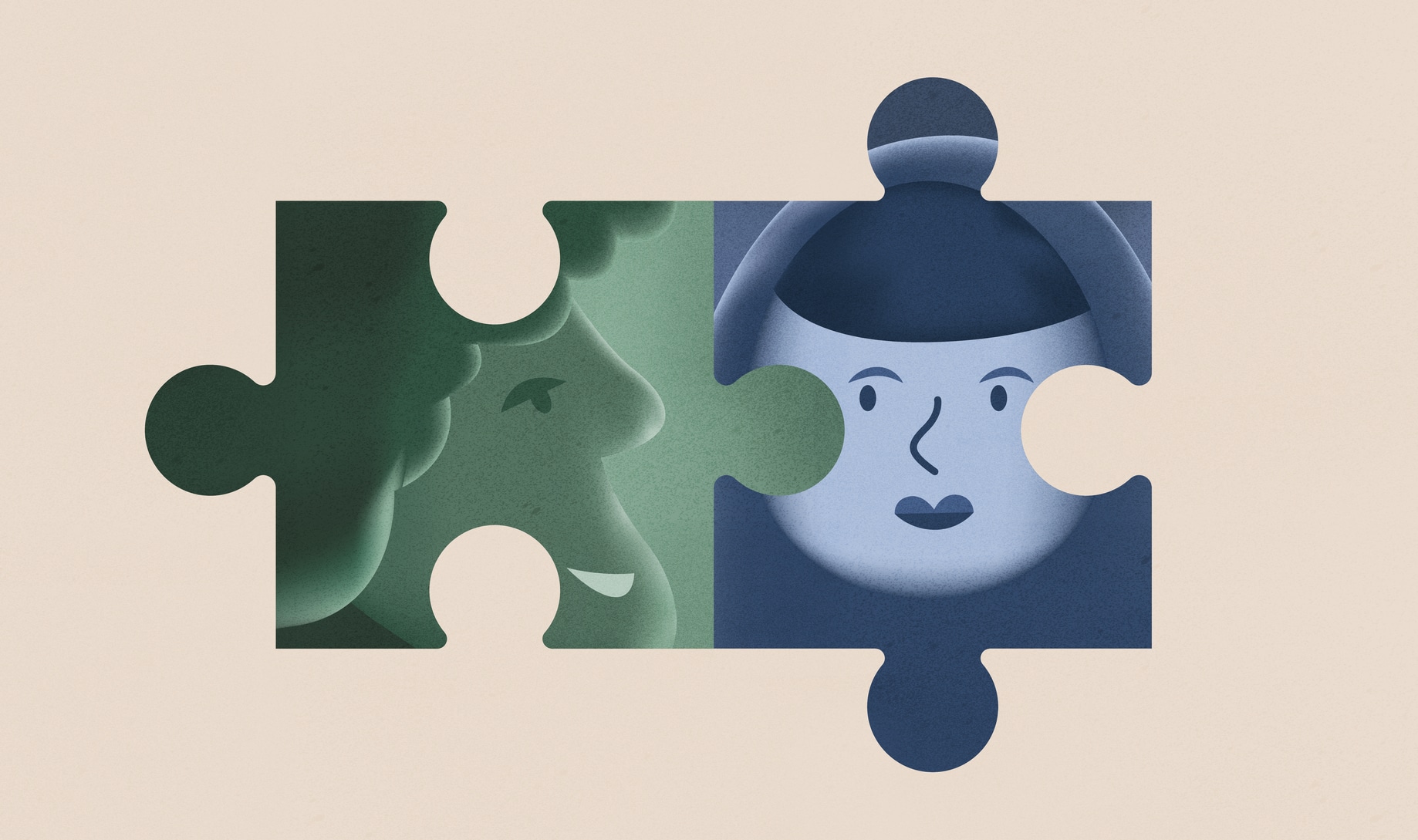
The word “coach” may evoke images of a friendly teacher who ran you through drills during high school soccer practice, a life coach who helps inspire clients to reach their goals, or a career coach focused on work-related challenges. Mental health coaches are also trusted partners who can help you achieve goals, but they focus on emotional health and wellness.
So, what is a mental health coach? They’re specially trained professionals who help people develop greater self-awareness, implement tools to better manage their lives, and pursue specific mental health goals. Coaches can help people with a range of conditions, from stress, burnout, and anxiety to those who need support through life transitions, tough feelings like anger, or relationship issues. Mental health coaching is designed to get you back on track when you’re feeling stuck and help you create a more rewarding life.
Much like therapists, behavioral health coaches listen deeply to their clients to gain an understanding of their personal needs, challenges, and hopes. Based on each client’s particular set of circumstances, mental health coaches also do the following:
- Ask questions that help people see things from a different perspective and open up to changes that’ll improve their lives
- Introduce new perspectives and skills. Mental wellness coaches help people develop skills to help them overcome obstacles they may be facing. They also provide a fresh perspective to help their clients reframe thinking patterns, better manage emotions, and address problems more effectively.
- Identify personal strengths. People learn to embrace their strengths as well as practice self-compassion and acceptance.
- Improve relationship skills
- Help clients design actions to facilitate behavior change and hold them accountable for putting them into practice. Clients rarely leave a behavioral health coaching session without establishing a personal practice to complete before their next session. This could mean a journaling exercise to clarify their values and goals, a new technique to try when emotions get the best of them, or another meaningful “homework” assignment designed to propel their transformation.
Mental health coach vs therapist
While a mental health coach and therapist both work to help you improve your mental health, there are several important differences.
- Credentials. Therapists hold at least a master’s degree in psychology or a related field, and must complete licensing requirements in their state, along with a certain number of supervised clinical treatment hours. Certain types of providers, such as psychologists, hold a PhD or PsyD.Mental health coaching, on the other hand, usually requires a certification program. Many of these programs are accredited by the International Coach Federation (ICF) or other coaching organizations.
- Area of focus. Behavioral health coaches help their clients focus on the present and future. Therapists, psychologists, and counselors are more likely trained to help clients heal from past and present challenges.
- Medication. Mental health coaches do not prescribe medication. They can recommend a client see a psychiatrist or psychiatric nurse practitioner if medication may be helpful.
- Diagnoses. Behavioral health coaches cannot diagnose mental illness, although they can recommend that a client seek a diagnosis from a therapist.
Common myths about mental health coaches
As a relatively new and rapidly growing area of coaching, there are many misconceptions about mental health coaching.
Myth #1: A mental health coach can’t help with “real” mental health issues
While mental health coaches aren’t therapists, they can still draw on principles and practices from evidence-based therapies such as cognitive behavioral therapy (CBT), acceptance and commitment therapy (ACT), and dialectical behavior therapy (DBT).
Extensive research backs the use of these interventions in a clinical setting to treat conditions like depression and anxiety. And mental health coaches’ use of these techniques for common problems like stress is promising. In fact, in a survey of over 300 Lyra coaching clients, 95 percent reported that they were satisfied with the program and 88 percent saw a reduction in their stress or improvement in their overall well-being.
Many people choose a mental health coach vs. a therapist if they want professional support, but don’t have a complex mental health condition such as post-traumatic stress disorder (PTSD), bipolar disorder, or suicidal thoughts. Emotional wellness coaches can help clients manage emotions, change their way of approaching problems, improve relationship skills, and reduce stress and anxiety—all of which bolster mental health.
Myth #2: Mental health coaches aren’t highly trained
Many mental health coaches are rigorously trained. For example, the mental health coaches in Lyra’s network undergo extensive vetting, credentialing, and training. To be considered as a prospective Lyra coach, a candidate must have graduated from a program accredited by the ICF, one of the most renowned professional coaching organizations worldwide. Only the most highly trained candidates are accepted—in fact, Lyra accepts just 2 percent of all applicants to its mental health coaching program.
Our mental health coaches complete a comprehensive, four-month orientation program designed and overseen by a team of clinicians that focuses on CBT principles and techniques. All coaches are given opportunities to practice this approach before meeting with clients. And just like therapists, coaches are trained to maintain professional boundaries and confidentiality in their relationships with clients.
Myth #3: Mental health coaches use a one-size-fits-all approach
Another misconception is that coaches rely on generic, one-size-fits-all techniques with clients. In reality, emotional health coaches rely on well-established codes of ethics, plus evidence-based techniques, while tailoring their approaches to best serve each client’s unique needs and circumstances.
Myth #4: Seeing a therapist is always the best option
Mental health occurs on a spectrum, and psychotherapy may not be the best option for your specific needs and challenges. Or, maybe you met with a therapist previously to better understand the effects of past experiences on your life and are now in a better position to focus on personal and professional development. While therapy can be a great fit for many people, for others there are several indicators that mental health coaching may be a better match. These include:
- The mental and emotional health challenges you’re dealing with are on the mild end of the spectrum.
- You prefer a shorter-term approach to personal growth and development.
- You want to improve your stress management or work-life balance.
- You want help in clarifying your values, goals, and purpose.
- You’re interested in learning practical, actionable ways to address your personal and professional challenges.
- You’re willing to try self-assessments, reading, journaling, or other “homework” to help overcome personal challenges.
Is a mental health coach right for me?
Here are some key questions to ask yourself in deciding whether mental health coaching is the best type of support for you.
- Do you have a mental health condition that significantly affects your life? If you live with significant anxiety or depression, PTSD, schizophrenia, or another complex condition, you may need a level of mental health care that a mental wellness coach cannot provide.
- Are you using, or would you like to use, medication to help manage your mental health? A mental health coach cannot prescribe medication, and therefore may not be the best fit for you.
- Do you need to supplement your existing mental health treatment? A behavioral health coach can be a great addition to other types of mental health treatment. In a situation like this, it’s important to have a transparent conversation with your therapist and coach to ensure the care you’re receiving in each location is unique and appropriate for separate concerns.
- Are you struggling with problems that are mainly situational or temporary, such as career troubles, grief from a recent loss, or stress? Behavioral health coaching may make sense.
- Are you seeking a proactive approach to mental health? If you aren’t experiencing a pressing mental health concern but want to be proactive with your mental health, mental health coaching could be the solution.
- Are you looking to become a better leader, employee, or member of your family and community? This kind of self-development is something that emotional wellness coaches excel at addressing.
Take charge of your mental health
Whether it’s a therapist, mental health coach, or another type of mental health care provider, reaching out for help is a brave step. With support, you can build greater self-awareness, shift your thoughts and beliefs, achieve your goals, and improve your well-being.
Find out if mental health coaching is right for you.
You can get started today if your employer offers Lyra.
Sign up nowPrioritize your emotional well‑being.
Join Lyra today

